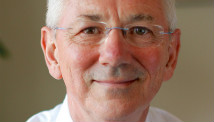PORTLAND, Maine Polar air settled in earnest over the Northeast after trekking through the Midwest, grinding trains to a halt, bursting pipes and bringing further misery to folks still trying to recover from superstorm Sandy.
The coldest temperatures were expected to continue Thursday, after which conditions should slowly moderate before returning to normal, said John Koch, a meteorologist with the National Weather Service regional headquarters in Bohemia, N.Y. For the most part, temperatures have been around 10 to 15 degrees below normal, with windy conditions making it feel colder, he said.
The Canadian air mass that arrived in the Upper Midwest over the weekend prompted the National Weather Service to issue wind chill warnings across upstate New York and northern New England.
In a storm-damaged neighborhood near the beach on New York City's Staten Island, people who haven't had heat in their homes since the late October storm took refuge in tents set up by aid workers. The tents were equipped with propane heaters, which were barely keeping up with the cold, and workers were providing sleeping bags and blankets for warmth.
The temperature was expected to dip to around 11 degrees before dawn Thursday.

Sandy victims left in the cold
Anthony Gambino has been sleeping in one of the tents off and on since Sandy severely damaged his home, CBS News correspondent Elaine Quijano reports. The former mechanic lives on disability.
"Next week they're talking about getting warmer, but let's face it, we're going into February," said Gambino. "February is unpredictable. March is unpredictable. We may get worse. We may get better. Who knows? Right now, we gotta deal with the moment, and the moment is bad."
The University of South Dakota in Vermillion offered a third consecutive night of free hotel rooms to 500 students who had to leave when a water pipe froze over an electrical room and damaged components. The cold also caused circuit problems on the Metro-North railroad serving areas north of New York City, creating rush-hour delays that were resolved by late Wednesday morning.
In northern New Hampshire, a man who crashed his snowmobile while going over a hill on Tuesday and spent a "bitterly cold night" injured and alone on a trail died on Wednesday, the state's Fish and Game Department said. Friends who went looking for John Arsenault, of Shelburne, when he didn't show up for work found him unconscious Wednesday morning, and he died later at a hospital, authorities said.
In Pennsylvania, officials at a park on Lake Erie warned visitors to stay off hollow "ice dunes" forming along the shore because of the danger of frigid water underneath. A ski resort in New Hampshire shut down Wednesday because of unsafe ski conditions: a predicted wind chill of 48 degrees below zero.
In northern Maine, the temperature dipped to as low as 36 below zero Wednesday morning. The weather service was calling for wind chills as low as minus 45.
Keith Pelletier, the owner of Dolly's Restaurant in Frenchville, said his customers were dressed in multiple layers of clothing and keeping their cars running in the parking lot while eating lunch. It was so cold that even the snowmobilers were staying home, he said.
"You take the wind chill at 39 below and take a snowmobile going 50 mph, and you're about double that," he said. "That's pretty cold."
For Anthony Cavallo, the cold was just another in a litany of big and small aggravations that began when superstorm Sandy swept through his Union Beach, N.J., neighborhood and flooded his one-story house with 4 1/2 feet of water.
Still waiting for the go-ahead to rebuild, Cavallo and his family have been living in a trailer they purchased once it became clear they couldn't afford to rent.
Wednesday's frigid temperatures temporarily froze the trailer's pipes, which Cavallo's 14-year-old daughter discovered when she tried to take a shower at 4:30 a.m. Cavallo spent the morning thawing out the pipes and stuffing hay under the trailer to help insulate them.
"Every day it's something, whether it's frozen pipes or getting jerked around for two months by insurance companies," the 48-year-old security system installer said. "I just kind of want to wake up one day and have no surprises."
In New York City, food vendor Bashir Babury contended with bone-numbing cold when he set up his cart selling coffee, bagels and pastries at 3 a.m. Wednesday. On the coldest of days, he wears layers of clothing and cranks up a small propane heater inside his cart.
"I put on two, three socks, I have good boots and two, three jackets," he said. "A hat, gloves, but when I'm working I can't wear gloves."
A little cold air couldn't keep Jo Goodwin, of Bridgewater, N.H., off the slopes at Sugarloaf ski resort in Carrabassett Valley, Maine, where she was skiing Wednesday with her husband and her sister. The snow conditions were great, and there were no lift lines.
To keep warm, she uses a toe warmer, a hand warmer, a face mask, extra underwear and an extra wool sweater. She was told the wind chill was minus 30 midway up the mountain and 50 below zero near the top.
"Sometimes," she said, "it's better not to know."












